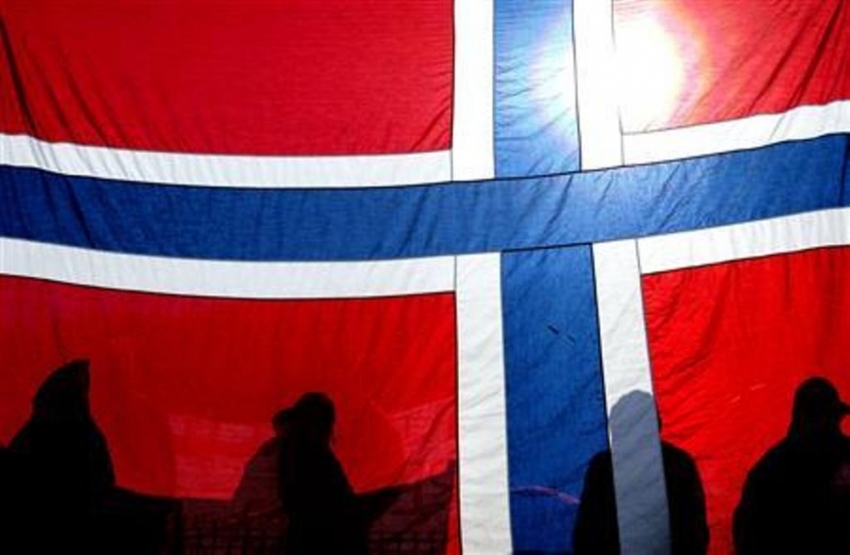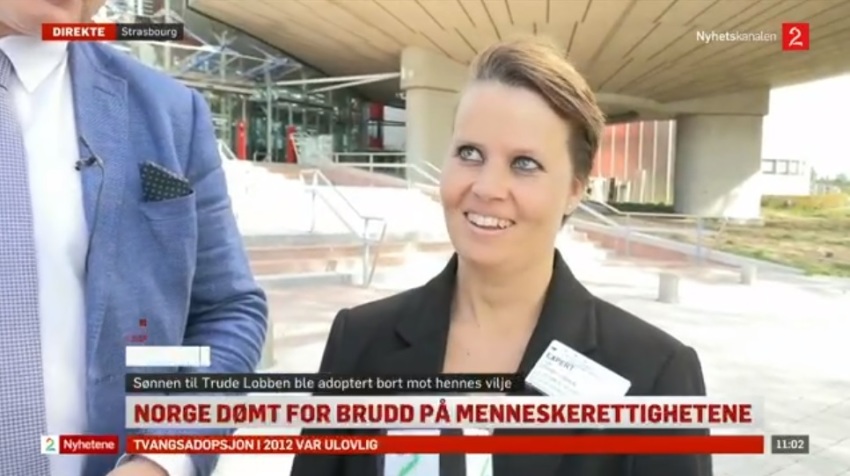Norway CPS violated mother's rights through forced adoption: European rights court

Europe’s top human rights court ruled Tuesday that Norway’s controversial child services agency violated a mother’s rights by forcibly adopting her son to a foster family years after he was removed from her custody at three weeks old.
The grand chamber of the European Court of Human Rights in France ruled 13 to 4 that the Norwegian CPS agency known as Barnevernet violated section 8 of the European Convention on Human Rights in the case of Strand Lobben and Others v. Norway.
The court concluded that the agency infringed on Trude Lobben and her son’s rights to family life as Barnevernet is accused of not providing adequate examination into Lobben’s parenting skills or adequate analysis to back up its claim that the child was vulnerable and that adoption was in his best interest.
The child, who is now 11 years old, was removed from Lobben’s custody in 2008 and later adopted to a foster family in 2011.
“Human rights advocates have been highlighting the destructive practices of the Barnevernet for years. This ruling is a step in the right direction for parental rights in Norway and beyond,” Lobben’s lawyer, Grégory Thuan Dit Dieudonne, said in a statement released through ADF International. “Even a positive judgment cannot make up the precious 10 years this family has lost at the hands of the Norwegian state.”
For years, Barnevernet has received much criticism from the international community for removing children from their parents' custody for seemingly arbitrary reasons. In a number of cases, families have fled the Scandinavian country because of what they alleged to be Barnevernet’s aggressive treatment.
On social media, critics of Barnevernet’s practices are hopeful that the ECHR judgment in favor of Lobben is a sign that Norway will be held accountable for what many say is the unlawful removal of children.
“I almost don't know what to say. But this must have consequences. And then I'm glad the decision can help many others who have experienced injustice from child welfare,” Lobben told Norway’s TV 2 after the reading of the court’s decision.

Lobben’s first child was born in September 2008 after having difficulties during pregnancy.
Lobben turned to child welfare authorities for help after the child was born and accepted an offer to stay at a family center for evaluation during the first month of her son’s life.
A month after the baby’s birth, the mother left the center and the baby was taken into compulsory care over concerns about the mother’s parenting skills and concerns that the child was not receiving enough food.
Lobben’s son remained in foster care for three years until his foster parents were authorized to adopt the child in 2011.
The court system in Norway had ruled a year prior that it would not be in the best interest of the child to discontinue foster care and return the child to Lobben, who had gotten married and had another child, because of limitations in the mother’s parenting skills.
Lobben was granted limited visitation rights. In 2011, the mother’s parental authority was taken away. The court later concluded that adoption would be in the child’s best interest.
The Norwegian court ruled that the foster parents, whom the son regarded as his true parents because they were all he’d ever known, would provide the child with greater security.
Additionally, the authorities concluded that the mother and son had not bonded during supervised visitation sessions.
However, the ECHR reasoned in its judgment that the visitation sessions for Lobben and her son had not been conducive to bonding. Additionally, the court points out that little had been done to make alternate arrangements to help the child bond with the mother.
The ECHR found that the decisions taken in the proceedings to remove a parental authority between April 2011 and October 2012 interfered with the mother’s section 8 right to family life.
“That interference had been in accordance with the law, namely the Child Welfare Act, and had been justified by the ‘protection of health or morals’ and the ‘rights and freedoms’ of [the child],” a summary of the court’s judgment reads.
The court also criticized the Norwegian government for not ordering new reports to examine the mother’s capacity to care for the child prior to its 2012 decisions.
“In making their decisions, the courts had regard to evidence given by two psychologists who had been commissioned as experts and drawn up reports during the prior proceedings on foster care in 2010, but those experts had not carried out any examinations since,” the summary provided by the court reads.
“Only one of those reports had been based on actual observation of contact sessions, and then only on two occasions.”
The grand chamber additionally slammed the child services agency for providing little analysis on the nature of the child’s vulnerability beyond claiming that he was easily stressed and in need of security and support.
“Against that background, the Court considered that the decision-making process had not been conducted so as to ensure that all the views and interests of the applicants had duly been taken into account,” the summary adds. “It was thus not satisfied that the procedure had been accompanied by safeguards that were commensurate with the gravity of the interference and the seriousness of the interests at stake.”
The grand chamber voted to force the Norwegian government to pay Lobben the equivalent of about $27,000 in damages and about $10,000 for costs and expenses.
“[T]he authorities in the present case failed from the outset to pursue the aim of reuniting the child with his mother, but rather immediately envisaged that he would grow up in the foster home,” a concurring opinion from six judges reads. “This underlying assumption runs like a thread through all stages of the proceedings, starting with the care order.”
Last June, a report from the Parliamentary Assembly of the Council of Europe found there to be a high frequency of emergency removals carried out by Barnevernet and called for safeguards to be implemented by child protection agencies across Europe in order to prevent abuses from occurring.
“The primary purpose of child welfare agencies is to support families,” Robert Clarke, director of European advocacy for ADF International, said in a statement.
“The investigation into Norway showed that without effective safeguards, child welfare agencies can cause long-term damage to families and undermine the prior right that parents have to raise their children. Norway must respect the right of parents to raise their children and intervene only when there is evidence of a serious breach of the parents’ duties.”
Clarke said there is hope that the ECHR judgment will “ensure that Norway fully respects its obligation to uphold parental rights under international law.”
Norwegian human rights lawyer Marius Reikeras told The Christian Post that the European Court of Human Rights ruling will force the government to reunite Trude Lobben with her son.
As many as 16 complaints have been lodged against Norway’s government over the removal of children from parental custody.
Lobben’s case is similar to that of an American mother Amy Jakobsen Bjørnevåg, whose son Tyler was removed from her custody at 19 months old over health concerns.
With Tyler having been removed from her custody over six years ago, Tyler is also in danger of being forcibly adopted by a foster family.
Follow Samuel Smith on Twitter: @IamSamSmith
or Facebook: SamuelSmithCP



























